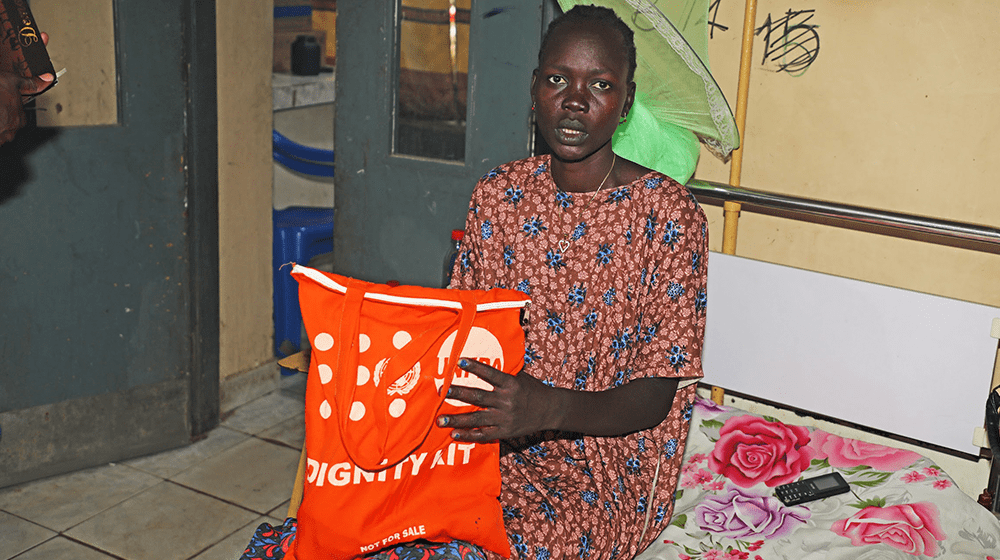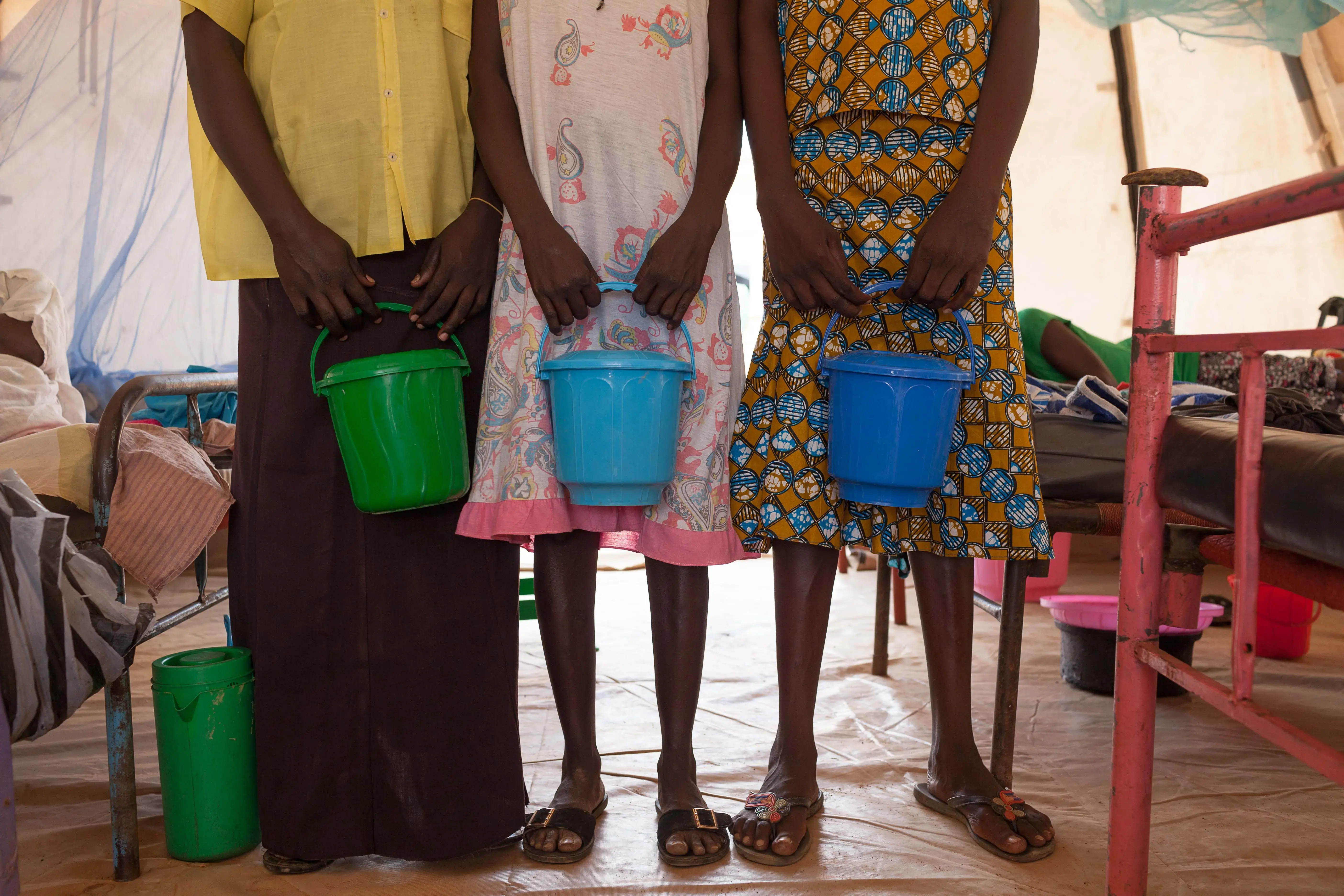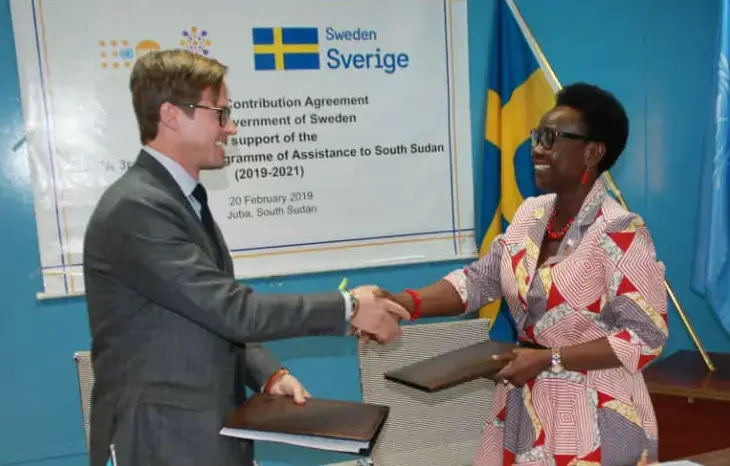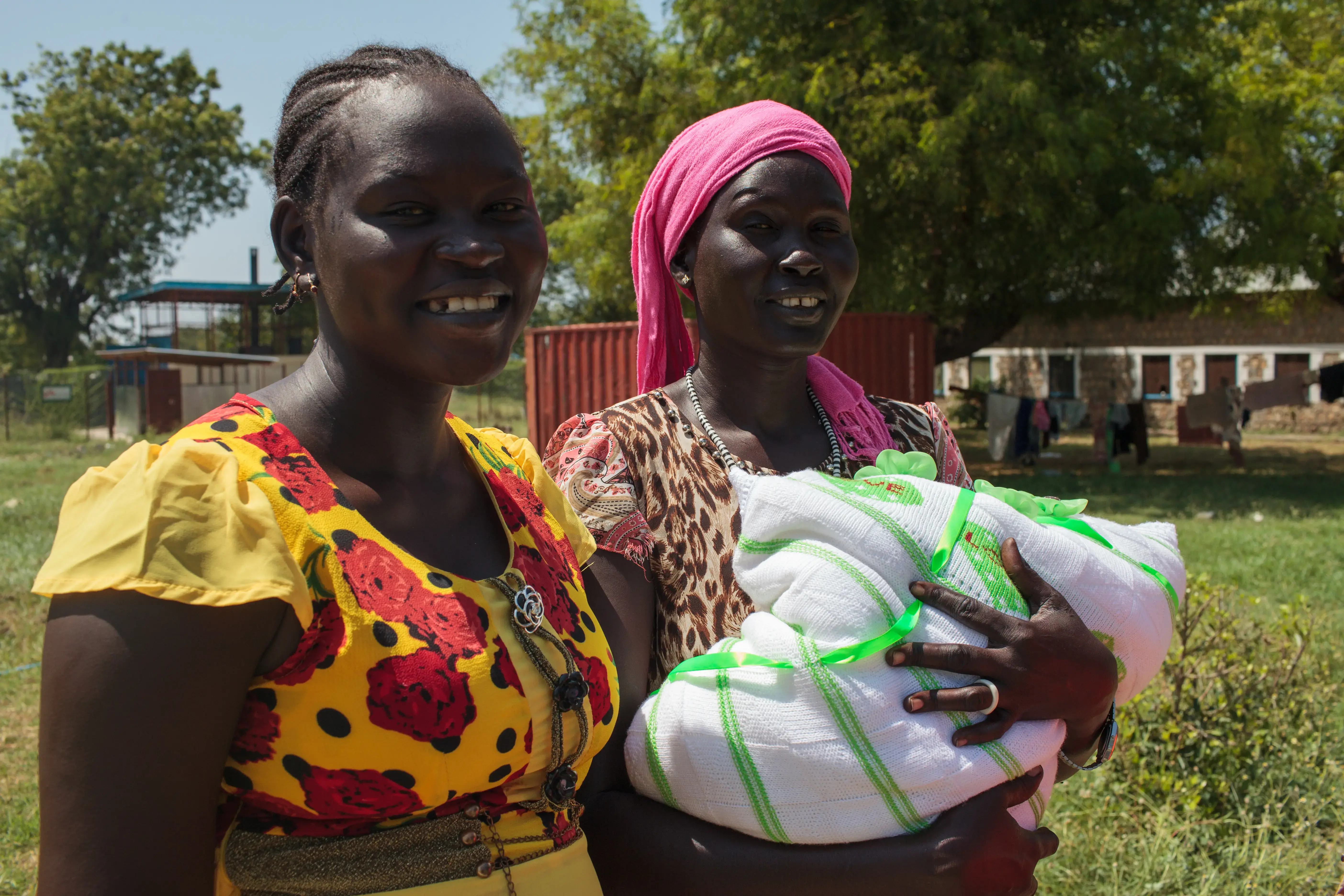Following the development and launch of The National Obstetric Fistula Strategy (NOFS) 2019-2023 for South Sudan, the Ministry of Health together with its partners aim to increase access to quality obstetric fistula prevention, treatment and rehabilitation services, the move is part of the international agenda to eradicate Obstetric Fistula (OF).
Among the many poor health indicators, South Sudan has one of the highest maternal mortality ratios in the world standing at 1,150 per 100,000 livebirths[1] and a high obstetric case fatality rate of 3.5%. It is estimated that Obstetric Fistula prevalence stands at 3% of women in reproductive age group giving an estimate of about 60,000 backlogs of women living with Obstetric Fistula in South Sudan with less than 1,000 having received any surgical repairs and treatment.
The undersecretary Ministry of health Dr. Victoria Anib, thanked UNFPA, and Amref Africa for the continued efforts in trying to address the challenges of Obstetric Fistula, “there is need to address issues of child marriage, and gender-based violence to effectively tackle the challenges of Obstetric Fistula in South Sudan.” She said
The Obstetric Fistula situation is particularly more precarious due to the high rate of teenage pregnancies estimated at 300/1000 and adolescent birth rate of 158/1000. Early marriages and teenage pregnancies have been widely associated with inability to make informed decision about contraception hence increasing the risk for obstructed labour due to an immature bony pelvis. The weak health systems and poor referral systems coupled with delays to seek professional health care have not only increasd the risk of pregnancy and childbirth complications but also limited the access to caesarean sections for women previously repaired and treated for Obstetric Fistula.
On his part, UNFPA representative, Dr. Olajide Demola said,
“there is need for innovative approaches to deploy training and technical support of the diverse cadres of health workers”
Exacerbated by negative culture norms, customs, and traditional beliefs, sexual and gender-based violence alongside child marriage have undermined the health and safety of many women in South Sudan. Some studies have indicated that that about a third of women and girls have experienced physical and/or sexual violence in their lifetime and about half have experienced intimate-partner violence (IPV). Such contextual realities underpin the chronic stress propagated by the fear of reprisals.
The Fistula camp saw a total of 41 survivors undergo corrective repairs at Juba Teaching Hospital over the past two weeks.
Obstetric Fistula is an abnormal medical condition whereby there is an opening between the vaginal wall and the urinary bladder, urethra, or rectum of a woman that results in leakage of urine and or faeces through the vagina. During obstructed labour, the wall tissues of the bladder, vagina and rectum are hard pressed between the baby’s head and the pelvis bone. This prolonged pressure cuts off blood supply to the affected tissues causing tissue death leading to sloughing and eventually a hole forms between the bladder and vagina or vagina and rectum leading to vesico-vagina fistula (VVF) and recto-vaginal fistula (RVF) respectively or even both.





